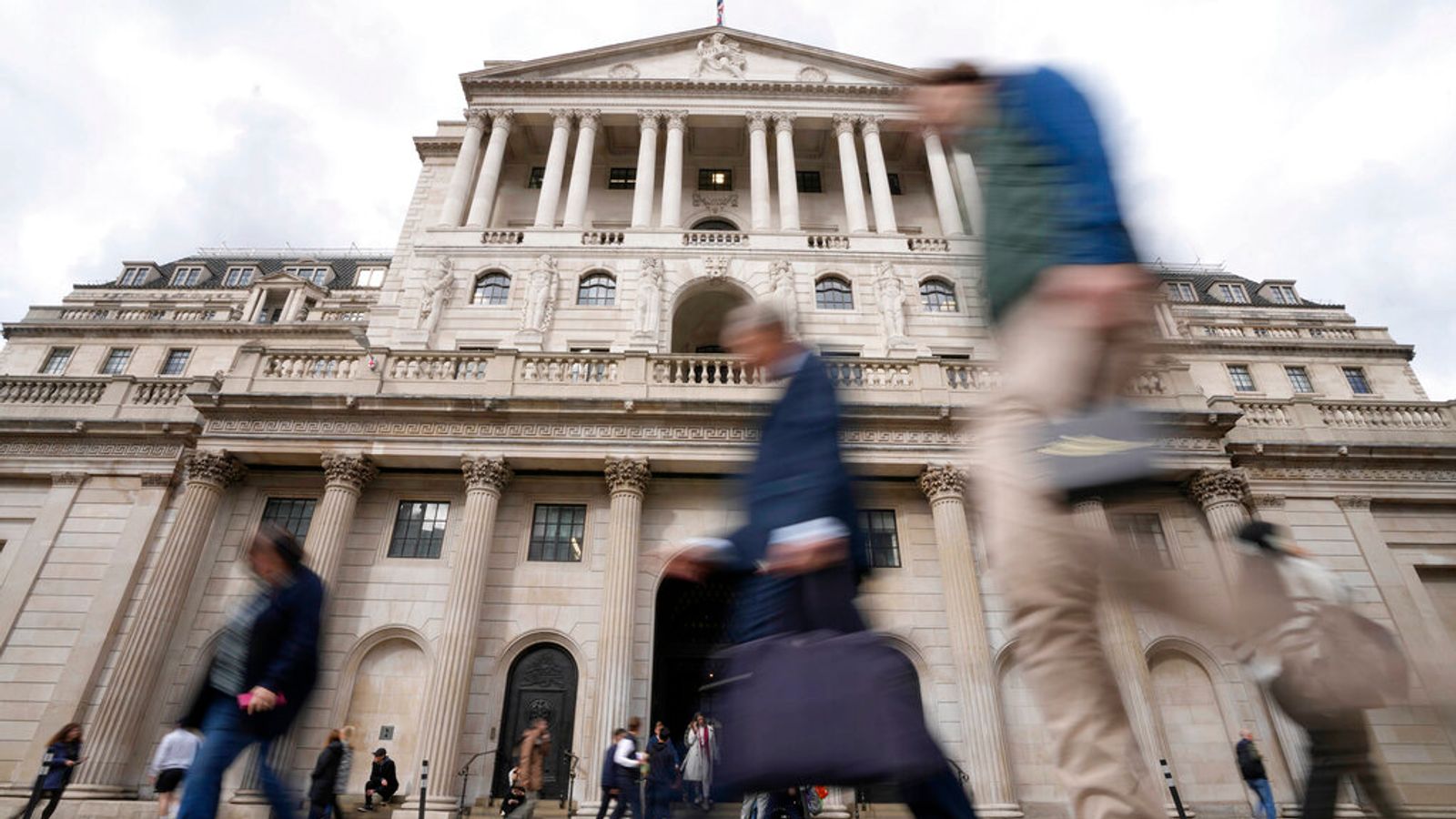Britain’s banking sector is resilient to rising interest rates, the Bank of England has said.
The central bank’s financial policy committee said that banks had the capacity to support lending to businesses and households even if interest rates climb higher than expected.
Central bankers have been eager to quash any fears that the banking sector is coming under severe strain after a number of high-profile bank failures in the US triggered a loss of confidence in Credit Suisse.
European banks have suffered a sharp drop in their share prices as investors “test” weaknesses in other banks.
The collapse of Silicon Valley Bank, the US’s 16th largest bank, was driven by a sharp rise in interest rates that exposed weaknesses in the bank’s risk management.
Central bankers across the world have been raising rates aggressively over the past year to combat a sharp rise in inflation.
Read more:
How worried should we be about British banks?
Are we teetering on the edge of a banking crisis?
Silicon Valley Bank was heavily invested in long-dated Treasury bonds, which have fallen in price as interest rates have climbed. The bank was forced to sell those bonds at a loss after suffering a major outflow of deposits.
In recent weeks UK policymakers have repeatedly underplayed the risk of UK banks facing similar problems.
In its latest report, the bank’s financial policy committee said that the country’s banks were well capitalised with large liquid asset buffers, around two-thirds of which are currently in the form of cash or central bank reserves.
While the UK has largely avoided the latest fallout, the committee recognised some vulnerabilities due to rising interest rates.
Last autumn it was forced to intervene with gilt purchases after a sharp rise in UK gilt yields exposed vulnerabilities in liability investment (LDI) funds, in which many pension schemes invest. This led to a vicious spiral of collateral calls and forced gilt sales.
Be the first to get Breaking News
Install the Sky News app for free
The bank said on Wednesday that it is recommending the pension regulator “takes action as soon as possible to mitigate financial stability risks” by requiring funds to hold enough liquidity so that they can withstand, at a minimum, a 250 basis point change in interest rates.
It also noted that riskier corporate credit markets, made up of leveraged loans, high-yield bonds and private credit, were particularly vulnerable to rising rates.
This market has almost doubled in size over the past year as a decade of low-interest rates caused investors to go in search of higher yields.
“The FPC has been closely monitoring these events and judges that the UK banking system remains resilient,” the bank said. “The FPC will continue to monitor developments closely, in particular for the risk that indirect spillovers impact the wider UK financial system”.
They echoed comments made by Andrew Bailey, governor of the Bank of England, who said this week that the bank was “alert” to emerging risks but confident in the resilience of the banking sector.
Speaking on Monday at the London School of Economics, he said: “Suffice to say we believe the UK banking system is resilient, with robust capital and liquidity positions, and well placed to support the economy.
“We have a strong macroprudential policy regime in this country. With the financial policy committee on the case of securing financial stability, the monetary policy committee can focus on its own important job of returning inflation to target.”





